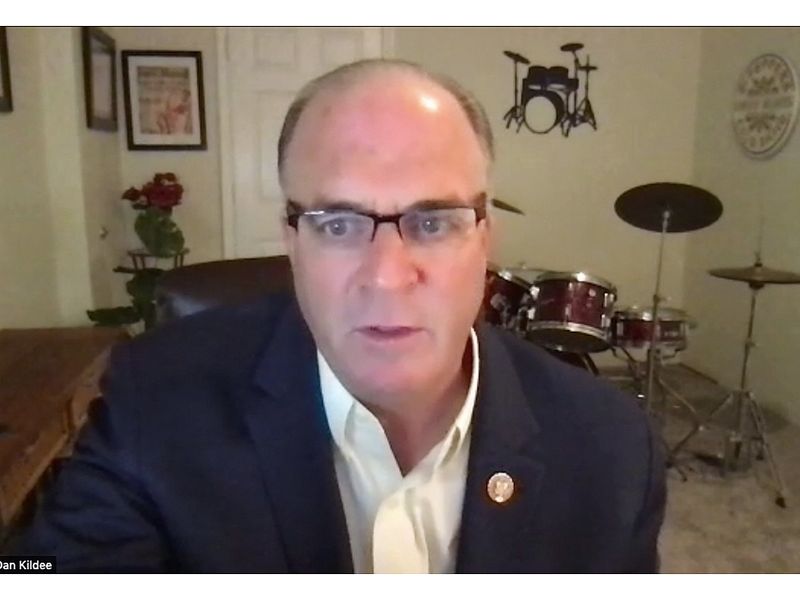
WASHINGTON — U.S. Rep. Dan Kildee is working on the details of a tax credit in the $3.5 trillion budget reconciliation bill that would make electric vehicles more affordable for consumers while supporting union jobs.
“We’re doing that by making the tax credit fully refundable, which means it’s available at the point of sale to ensure that more Americans have access to this,” Kildee, D-Mich., said during a virtual press conference Wednesday with state leaders and local advocates. “We’re ensuring that we support American jobs — especially union jobs — so we don’t support foreign vehicles over American-made ones.”
Kildee said he is working directly with President Joe Biden, House Speaker Nancy Pelosi and Michigan Democratic Sen. Debbie Stabenow on the effort.
House and Senate committees are expected to mark up various pieces of the budget package by a nonbinding deadline of Sept. 15. The budget bill can pass in the Senate with a simple majority vote, or 50 senators plus the vice president.
The Senate Finance Committee in May approved a proposal led by Stabenow in the Clean Energy for America Act that would allow vehicle buyers to receive as much as $12,500 for EVs assembled by union workers at U.S. factories.
Under the proposal, consumers are eligible for a $7,500 tax credit if they buy an EV and can receive an additional $2,500 if the vehicle is assembled in the U.S. and another $2,500 if it is assembled in a plant whose work force is represented by a union.
Kildee, who is a member of the Ways and Means Committee and the Budget Committee, said the House is “largely working on the basis of the work” that was done together with Stabenow but still working through “a lot of these numbers.”
“The entire U.S. economy and the creation of the middle class was built because of the fact that we were able to organize labor unions, and we want to tilt our policies in favor of those workers,” he said in a response to a question from Automotive News.
Toyota Motor Corp., American Honda Motor Co. and other nonunion industry advocates have criticized Stabenow’s proposal, calling it unfair and discriminatory and arguing that favoring EVs built by union workers will limit consumer choice.
In a LinkedIn post last week, Volkswagen Group of America CEO Scott Keogh also scrutinized the proposal.
“It’s clear that the Biden administration and congressional leaders support the goal for increased electrification. But it’s also clear that recent congressional efforts have incorrectly focused on incentives that favor some automakers over others, limiting consumer choice and weakening the EV market,” Keogh wrote in the post.
“We believe incentives should be focused on building a strong, fair, and complete market that accelerates widespread domestic demand.”
The UAW has praised the Stabenow proposal, arguing that it provides additional benefits and incentives and doesn’t prevent automakers from selling any vehicles.
The UAW has endorsed Kildee, who stood with Michigan union workers on strike against General Motors in 2019.
“We just believe that in a time when we’ve seen decreased rates of unionization, falling wages, decreased emphasis on worker protection, decreased emphasis on good benefits, that we ought to try to tilt the scale back in favor of an economy that is sustainable, that supports families,” Kildee said. “We think this is one way to do that.”

